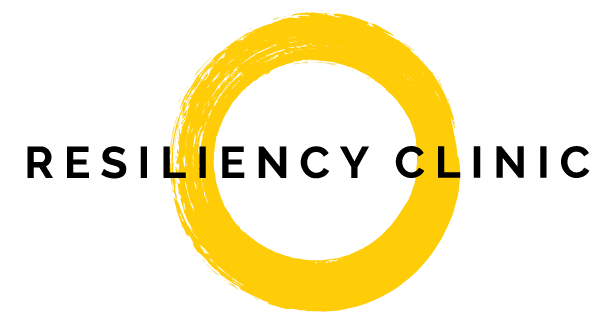Mental health is a crucial aspect of our overall well-being. Yet, it is often shrouded in misunderstanding and prejudice.
This is largely due to the pervasive mental health stigma that exists in societies worldwide. This stigma can manifest in various forms, from public attitudes to self-inflicted shame, and can have devastating effects on individuals struggling with mental health issues.
Understanding and overcoming mental health stigma is not just a personal endeavour. It’s a collective responsibility that requires empathy, education, and action from all of us.
In this article, we will delve into the reality of mental health stigma, its historical context, and the psychological mechanisms behind it. We will also share personal stories that highlight the real-life effects of stigma.
Moreover, we will explore strategies for overcoming self-stigma, supporting others facing mental health stigma, and the role of mental health professionals in destigmatization. We will also discuss the importance of policy and legislation, and the power of community and online support in combating stigma.
Our aim is to foster mental health awareness, encourage seeking mental health support, and contribute to the reduction of stigma associated with mental health issues. Let’s embark on this journey towards understanding and overcoming mental health stigma together.
The Reality of Mental Health Stigma
Mental health stigma is a global issue affecting millions. It permeates various levels of society, influencing individual experiences and societal structures. Many people facing mental health challenges encounter misconceptions, prejudice, and discrimination.
This stigma often deters individuals from seeking the help they need. Fear of judgment can lead to social withdrawal and an increased sense of isolation. Unfortunately, stigma also exists in institutional contexts like workplaces and healthcare settings, resulting in unfair treatment.
Research highlights several key forms of stigma:
- Public stigma: Negative societal attitudes and stereotypes.
- Self-stigma: Internalized shame and reduced self-esteem.
- Institutional stigma: Policies that discriminate against people with mental health issues.
Each form exacerbates challenges for those affected. Combating them requires comprehensive strategies and awareness.
The depth and complexity of stigma’s impact are profound. It affects mental health outcomes and quality of life. As a society, we must strive to understand and dismantle these barriers. This initiative involves education, empathy, and inclusive policies.
By recognizing stigma’s realities, we can take meaningful steps towards creating a supportive and accepting world for all.
Defining Stigma and Its Forms
Stigma refers to negative attitudes and beliefs that society holds about certain characteristics or people. In mental health, stigma can manifest as public, self, or institutional stigma.
Public stigma involves stereotypes that the general population may have about mental illness. Such beliefs often label individuals as dangerous, incompetent, or weak.
Self-stigma occurs when individuals with mental health issues internalize these negative perceptions. This can lead to decreased self-worth and reluctance to seek help. Institutional stigma is embedded in policies and practices that disadvantage individuals facing mental health challenges. These forms of stigma create substantial barriers to treatment and recovery.
The Prevalence and Impact of Stigma

Stigma surrounding mental health remains prevalent, affecting many individuals and communities. According to studies, a significant percentage of people with mental health issues do not seek help due to stigma.
This reluctance often stems from fear of judgment and discrimination. Stigma contributes to societal issues, impacting relationships, employment, and overall quality of life.
Key impacts of mental health stigma include:
- Social Isolation: Stigma can lead to withdrawal from social activities.
- Employment Challenges: Discrimination at workplaces affects job opportunities.
- Inadequate Treatment: Fear of stigma discourages individuals from pursuing care.
These consequences highlight the urgent need to address mental health stigma. Promoting mental health awareness can foster understanding and acceptance. By doing so, we can improve access to mental health support and encourage timely intervention.
Historical Perspectives on Mental Health Stigma
Mental health stigma has deep historical roots. In ancient times, mental illness was often misunderstood and associated with supernatural forces or moral failings. Individuals with mental health issues were frequently marginalized, isolated, or subjected to inhumane treatments.
The Enlightenment period began a shift toward medical explanations, yet stigma persisted. Psychiatric institutions often focused on containment rather than treatment, further entrenching negative stereotypes.
In the 20th century, as psychology and psychiatry advanced, stigma began to slowly decline but never disappeared. Despite these advancements, mental health remains stigmatized in many cultures today. Understanding this historical context is crucial in our efforts to dismantle stigma.
Addressing these longstanding beliefs requires awareness, education, and systemic change. As we learn from the past, we can foster a more inclusive and supportive future for mental health.
The Faces of Stigma: Personal Stories
Personal stories about mental health stigma shed light on its profound impact. These narratives reveal the emotional and practical challenges faced by individuals. Hearing from those affected humanizes the abstract concept of stigma.
For instance, a young man struggling with anxiety may avoid seeking help due to fear of judgment. His story highlights how deeply stigma affects personal decisions and well-being. This reluctance can lead to deteriorating mental health, showcasing the critical need for support.
A mother might struggle with depression yet faces dismissive attitudes both professionally and socially. Her experience reflects the broader issue of institutional stigma and underscores the need for systemic change. Personal stories like hers underline the importance of empathy and understanding in destigmatization efforts.
By sharing these stories, we foster awareness and inspire change. They serve as powerful reminders of the work needed to create an inclusive environment for mental health discussions.
Media’s Role in Shaping Stigma
The media plays a significant role in shaping public perceptions of mental health. It can perpetuate stereotypes or act as a catalyst for positive change. Unfortunately, sensationalized portrayals of mental illness often reinforce negative beliefs and misconceptions.
Movies and TV shows sometimes depict individuals with mental health issues as violent or unstable. This can lead to fear and misunderstanding among audiences. In contrast, narratives that show nuanced and compassionate portrayals can promote empathy and understanding.
Social media is also a powerful platform for changing stigmatizing narratives. When influencers and celebrities share their mental health experiences, it breaks down barriers and normalizes discussions. By leveraging media’s reach, we can combat stigma more effectively and foster mental health awareness.
Stigma in Diverse Communities
Mental health stigma varies across different communities and cultural groups. In some cultures, discussing mental health is taboo, leading to secrecy and denial. This cultural context can make seeking support even more challenging.
Minority groups often face additional layers of stigma due to intersecting factors like race, gender, or sexual orientation. For example, LGBTQ+ individuals might experience discrimination both for their identity and their mental health, compounding their challenges. Understanding these intersections is key to providing effective mental health support.
Efforts to reduce stigma must consider the unique experiences of diverse communities. Tailored interventions and culturally sensitive approaches are essential. By engaging with these communities, we can build trust and create more equitable mental health support systems.
Understanding the Psychology Behind Stigma
Mental health stigma is deeply rooted in psychological processes. Understanding these processes is crucial for effective intervention. Central to this are stereotypes, which are oversimplified ideas about mental health conditions.
These stereotypes often lead to prejudice, an emotional response or judgment formed without full knowledge. Prejudice can manifest as fear or distrust towards individuals with mental health issues, further isolating them. Discrimination is the behavioral outcome of these stereotypes and prejudices.
All these components influence how society interacts with mental health. Challenging these ingrained beliefs requires education and exposure to counter-narratives. Promoting mental health awareness is vital in reshaping societal attitudes.
Education can dispel misconceptions and replace fear with understanding. Encouraging open conversations about mental health helps normalize these discussions. As a society, addressing these psychological roots is a step towards dismantling stigma.
Stereotypes, Prejudice, and Discrimination
Stereotypes are simplistic beliefs about people with mental health conditions. They often depict individuals as dangerous or incompetent. This deeply held notion contributes to ongoing societal stigma.
Prejudice involves the emotional response to these stereotypes. It can result in feelings of fear or disdain toward those with mental illness. This emotional bias fuels social distancing, exacerbating isolation for affected individuals.
Discrimination is the action stemming from stereotypes and prejudice. It includes denying opportunities or treating people unfairly due to their mental health status. By addressing these three elements, we can begin dismantling systemic barriers to mental health support.
The Consequences of Stigmatization
The repercussions of mental health stigma extend across various aspects of life. It can result in social isolation, where individuals withdraw from community and support networks. This isolation can prevent people from seeking the help they need.
Furthermore, stigma affects employment opportunities. It may lead employers to unfairly judge a candidate’s capability based on their mental health. This discrimination adds an unnecessary barrier to achieving economic stability and personal fulfillment.
Healthcare, too, is not immune to the effects of stigma. Individuals may receive inadequate care or avoid healthcare settings entirely due to fear of judgment. Addressing and overcoming stigma is critical to ensuring equitable access to mental health support for all.
Language Matters: The Power of Words
Words have immense power in shaping perceptions of mental health. Often, the language used in daily conversations can reinforce stigma. Terms like “crazy” or “psycho” perpetuate harmful stereotypes, implying that mental health issues are aberrations rather than common experiences.
Changing the way we talk about mental health is crucial. Using person-first language, like “a person with schizophrenia,” emphasizes humanity over diagnosis. This shift promotes empathy and respect, making it easier to support those facing mental health challenges.
Additionally, thoughtful language choices encourage open dialogue. They create safe spaces for individuals to share their experiences without fear of judgment. By choosing our words wisely, we contribute to a more inclusive environment that fosters mental health support and understanding. Reducing stigma begins with mindful communication, empowering people to seek help and build resilience.
Strategies for Overcoming Self-Stigma
Overcoming self-stigma is a journey requiring awareness and action. It starts with recognizing the internalized negative beliefs about mental health. Such self-stigmatization can hinder personal growth and well-being, making it crucial to actively challenge these thoughts.
A practical approach is to educate oneself about mental health conditions. Understanding that mental health challenges are common and treatable can reduce feelings of isolation. Learning the facts helps counteract misconceptions and empowers individuals to view their experiences more positively.
Developing a list of affirmations and positive self-statements can also be beneficial. This list might include:
- “I am more than my diagnosis.”
- “Seeking help shows strength, not weakness.”
- “Progress, not perfection, is what matters.”
Engaging in activities that foster self-esteem and promote a sense of achievement is essential. Celebrating small victories helps shift focus from perceived limitations to personal strengths. This ongoing process bolsters confidence and opens the door for change, enhancing one’s ability to thrive despite mental health challenges.
Building Resilience and Self-Care
Resilience is key to overcoming mental health challenges. It involves adapting positively in the face of adversity, building strength from within. By fostering resilience, individuals learn to view setbacks as opportunities for growth rather than insurmountable barriers.
Self-care is an integral part of resilience-building. Prioritizing physical health through regular exercise, balanced nutrition, and adequate sleep supports mental well-being. These habits create a solid foundation for managing stress and improving mood.
Additionally, practicing mindfulness can significantly enhance resilience. Techniques such as meditation and deep breathing promote relaxation and help in gaining perspective. This inner peace equips individuals to better handle negative thoughts and emotions, encouraging a more balanced response to life’s ups and downs. Together, resilience and self-care form a robust defense against self-stigma.
Supporting Others Facing Mental Health Stigma

Supporting someone facing mental health stigma begins with empathy and understanding. Recognize their experiences and listen without judgment. This openness can help create a safe space for discussing mental health challenges.
Awareness of the signs and symptoms of mental health issues is crucial. This knowledge ensures that we can offer timely support, recognizing when professional help might be needed. Educating oneself on mental health enhances the ability to assist others effectively.
Building a network of support is essential for individuals encountering mental health stigma. Encourage participation in support groups where shared experiences foster acceptance and understanding. These groups offer validation and reduce feelings of alienation.
Here are some practical ways to support:
- Educate yourself about mental health conditions.
- Encourage open discussions about feelings and struggles.
- Offer assistance in finding mental health resources.
Together, these actions empower individuals, helping them feel less isolated and more understood in their journey toward mental wellness.
The Role of Education and Peer Support
Education plays a pivotal role in reducing mental health stigma. It equips individuals with accurate information, dispelling myths and misconceptions. By fostering a culture of understanding, education diminishes fear and promotes acceptance.
Peer support is equally important in combating stigma. Sharing personal stories creates connections and normalizes mental health struggles. These interactions often provide comfort and validation that only someone with similar experiences can offer.
Furthermore, educational programs and peer-led initiatives can create environments where mental health conversations are normalized. These initiatives encourage openness and acceptance, building a community that supports recovery and wellness. Together, education and peer support are powerful tools in the fight against mental health stigma.
Advocacy and Awareness Campaigns
Advocacy and awareness campaigns are vital in challenging mental health stigma. They bring attention to issues often shrouded in silence and misinformation. By raising public awareness, these campaigns promote understanding and empathy.
Successful campaigns highlight personal stories and factual information. Sharing real-life experiences with mental health challenges helps humanize the issue, fostering a greater connection. These stories can resonate deeply, encouraging others to speak up and seek help.
Moreover, these campaigns often drive policy changes, improving access to mental health care and reducing discrimination. The collective voice of advocacy reinforces the message that mental health matters. Together, this unified effort can lead to a more accepting and supportive society for all.
Policy and Legislation: Societal Tools for Change
Policy and legislation are crucial in dismantling mental health stigma. They serve as frameworks for ensuring rights and equitable access to care. Effective policies mandate parity in mental health and physical health coverage.
Legislation can address discrimination in workplaces and educational institutions. By enforcing protections, laws empower individuals to seek help without fear of stigma or repercussions. These measures enhance the overall well-being of affected communities.
Moreover, ongoing advocacy is essential to drive legislative change. Engaging with policymakers and participating in public discourse raises awareness of these issues. Collective efforts can result in comprehensive policies that advance mental health parity.
Integrating Mental Health Services and Primary Care
Integrating mental health services into primary care settings is a strategic move. It normalizes mental health discussions and reduces stigma associated with seeking treatment. Primary care providers can play a pivotal role in early detection and intervention.
Patients often view their primary care providers as trusted resources. This trust can facilitate conversations about mental health concerns, leading to timely support. Integrated care models ensure that mental health services are accessible and less intimidating.
Furthermore, this approach can improve health outcomes by treating both physical and mental health needs concurrently. By weaving mental health care into standard medical practices, we pave the way for a more holistic and stigma-free healthcare system.
The Role of Mental Health Professionals in Destigmatization
Mental health professionals are crucial in the battle against stigma. Through their work, they bring understanding and empathy to the forefront. They help dismantle stereotypes by providing informed and compassionate care.
Educating both clients and communities about mental health issues is key. Professionals can debunk myths and challenge misconceptions. This education fosters an environment where mental health discussions are normalized.
In addition, mental health professionals can model non-stigmatizing behavior. By respecting and valuing their clients, they set a standard for others. This approach encourages a more inclusive and supportive society.
Cultural Competence and Confidentiality
Cultural competence in mental health care is essential for effective treatment. Professionals must understand diverse backgrounds to address specific needs. This understanding helps to reduce stigma by validating varied experiences.
Confidentiality is another cornerstone of trust in mental health care. Ensuring privacy encourages individuals to seek help without fear. When clients know their information is protected, they feel safer engaging in therapy.
Together, cultural competence and confidentiality create a supportive therapeutic environment. They empower individuals to share their stories and seek the help they need. This fosters a deeper connection and aids in the destigmatization of mental health issues.
The Power of Community and Online Support
Community and online support play a vital role in mental health care. They provide a sense of belonging and understanding. Individuals who feel isolated can find comfort in shared experiences.
Online platforms connect people across the globe, offering diverse support networks. These communities enable individuals to learn from others who face similar challenges. Access to such spaces can empower people to seek help and share their journeys.
Moreover, local support groups create safe spaces for open dialogue. They foster a sense of solidarity and mutual aid among members. These groups can significantly reduce the loneliness often associated with mental health struggles.

Conclusion: A Call to Continuous Action
Addressing mental health stigma is an ongoing journey requiring collective effort. It is not a challenge for a single group or individual. Society as a whole must work together to create change.
Awareness and education remain key components in this fight. We must ensure that mental health is discussed openly and without fear. This openness encourages those struggling to seek the help they need.
Policies and advocacy play a significant role in destigmatizing mental health. By supporting legislation that promotes mental health awareness, we foster a more inclusive society. Legislative changes are essential to protect and empower those with mental health conditions.
Each of us has the power to make a difference. By supporting mental health initiatives, we contribute to a more understanding world. Through our actions, we can create a future where mental health stigma is a thing of the past.






